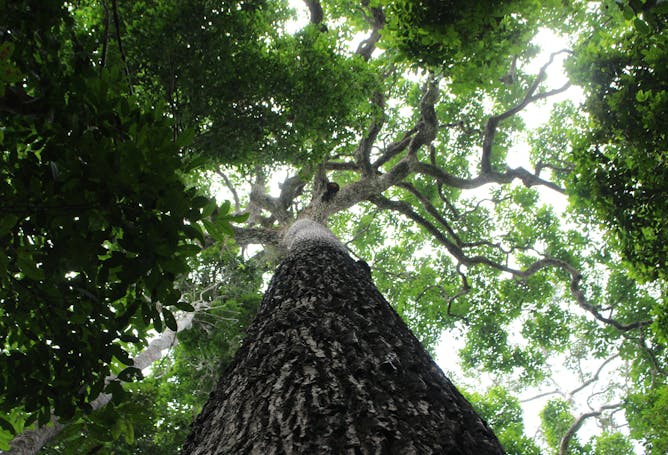|
|
|
Editor's note
|
|
Over the last few years, a slew of social media and YouTube channels featuring immaculately presented women preaching about being a “tradwife” have popped up. These women extol the virtues of being devoted to the men in their lives, proper etiquette, homemaking and child-rearing. Yet these women aren’t just politely raging against the feminist machine, as many would like to believe. The movement can also be seen as a reaction to the pressure for women to have it all and a symptom of the overloaded work culture of our times.
Balancing homelife and work in a society that still puts the onus on women to do the housework has led many of these women to yearn for “simpler times”. The tradwife movement idolises 50s housewives, and leaving behind the world of work to focus on the domestic sphere is paramount to tradwifehood. The irony is, as much as the movement denounces work, the tradwife life is dependent on the neoliberalism and feminism they say they are so desperately trying not to align themselves with. Many of the best-known tradwives are actually entrepreneurs, exposing how the movement can represent an empowered choice – and a lucrative one at that.
Elsewhere on The Conversation, we look at how trees in the tropical rainforests are more than carbon sponges. They are fascinating records of human history that explain how indigenous people help make these ecosystems so biodiverse. We also examine whether firstborn children are actually natural leaders, as the common assumption says.
|
Naomi Joseph
Commissioning Editor, Arts + Culture
|

|
|
Top stories
|

Trad wives are drawn to retro 1950s images of women as “happy housewives”
Flikr
Catherine Rottenberg, University of Nottingham; Shani Orgad, London School of Economics and Political Science
The Tradwife movement confounding feminist critics is a reaction to our overburdened times.
|

A Brazil nut tree in Jaú National Park, Amazonas, Brazil.
Victor Caetano-Andrade
Chris Hunt, Liverpool John Moores University
Trees in tropical forests are more than carbon sponges – they're cultural artefacts.
|

Dmitry Naumov/Shutterstock
Klara Sabolova, University of South Wales
Here's what psychological studies have discovered about birth order.
|
Health + Medicine
|
-
Michael Cole, Anglia Ruskin University
An estimated £300m worth of medicine goes unused in the UK every year. But is it safe to take drugs past their expiry date?
|
|
Business + Economy
|
-
Sarah Tottle, Lancaster University
Stress, and more chronic exhaustion such as burnout, is commonplace within the modern workplace.
|
|
Arts + Culture
|
-
Claire Jenkins, University of Leicester; Stevie Marsden, University of Leicester
Despite the efforts to expand the Academy, women and people of colour are once again conspicuous by their absence this year.
|
|
Education
|
-
Emily Marchant, Swansea University; Charlotte Todd, Swansea University; Gareth Stratton, Swansea University; Michaela James, Swansea University; Sinead Brophy, Swansea University
From obstacle courses to playing music, school children give their thoughts on how to make a daily run more exciting.
|
|
Politics + Society
|
-
Clodagh Harrington, De Montfort University
What the acquittal of Donald Trump means for the future of the US presidency.
|
|
Science + Technology
|
-
Genavee Brown, Northumbria University, Newcastle
Facing up to phone interruptions.
-
Daniel Brown, Nottingham Trent University
The Earth's shadow does not cause the Moon's phases.
|
|
| |
Featured events
|

|
5 West 2.1, University of Bath, Claverton Down, Bath, Bath and North East Somerset, BA2 7AY, United Kingdom of Great Britain and Northern Ireland — University of Bath
|

|
Bowland Auditorium, Berrick Saul Building, Campus West, York, York, YO10 5DD, United Kingdom of Great Britain and Northern Ireland — University of York
|

|
Room SLB/118, Spring Lane Building, Campus West, York, York, YO10 5DD, United Kingdom of Great Britain and Northern Ireland — University of York
|

|
Yorkshire Room, JB Morrell Library, Campus West, York, York, YO10 5DD, United Kingdom of Great Britain and Northern Ireland — University of York
|
|
|
|
| |
| |
| |
| |
| |
|
|
|
|
|
|
|